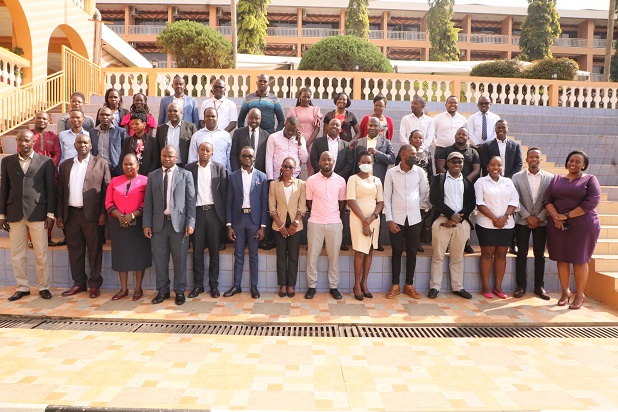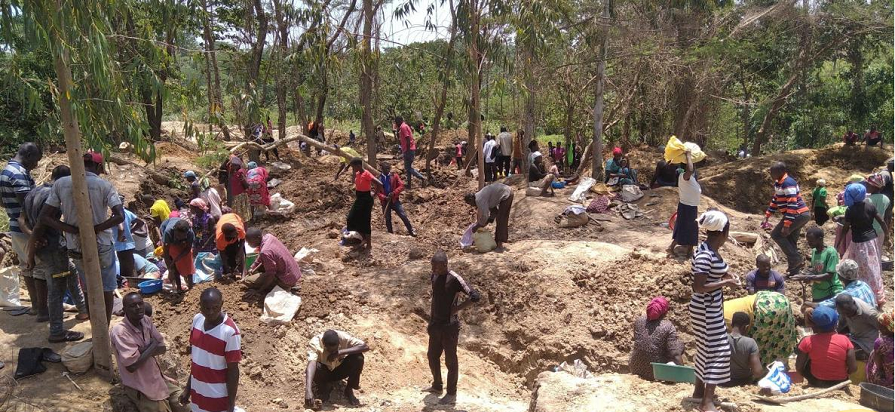UBOS, BoU and World Bank officials during the meeting
The Uganda Bureau of Statistics (UBOS) and the World Bank have disagreed on the methodology used while determining the Ugandan economy’s status.
In his State of the Nation Address on June 7, President Yoweri Museveni said that Uganda would achieve the economic indicators putting it in the threshold for lower-middle-income status by the time of the budget reading a week later.
The president repeated the same on budget day and wondered why Finance, Planning and Economic Development minister Matia Kasaija had not mentioned it in his speech. He said the conclusion was based on the size of Uganda’s economy or GDP compared to the population.
But on the last day of the financial year 2021/22, the World Bank released the 19th Uganda Economic Update, which showed that the country was yet to achieve the required figures to join the Middle-Income Countries, Middle Income Status. The report outs Uganda’s per capita income at USD 850, as opposed to the USD 1,045 dollars stated by President Yoweri Museveni.
According to the Bank, the GDP, which is the total monetary or market value of all the finished goods and services produced within a country’s borders in a specific time period, is no longer used to determine the status of the economy, but the Gross National Income (GNI), which considers GDP plus economic activities undertaken outside the country by Uganda nationals, excluding activities of foreigners resident in the country.
It’s for this reason that UBOS, the World Bank together with the Bank of Uganda met to harmonise their position following two opposing views on the economy. The meeting of the three institutions was sanctioned by the president to harmonise the positions, but it ended without agreement.
UBOS Executive Director, Chris Mukiza who described the meeting as cordial, said the only difference was in the choice of statistics to use.
“World Bank is reporting using GNI, that we shall explain -GNI per Capita. We at the Bureau reported GDP Per Capita. These are two different national account aggregates. So the issue is the interpretation and the reference period by the two reports, “Mukiza said.
He expressed disappointment that Uganda’s journalists like quoting foreign reports as opposed to national reports. “Yes, we shall discuss it because I want to concur with those guys who were running for a meeting,” said a visibly angry Mukiza.
He, however, said that they had concluded the meeting, but that they dispersed before concluding the joint statement, which, according to him, will be written when they convene by Wednesday. “I don’t want to release it and they say ‘this is not what we agreed on. We have to agree so that we do not confuse the public. We agreed but did not finish the statement”.
The World Bank statement created widespread social media criticism of the president, many asking where he had gotten his figures from.
-URN





